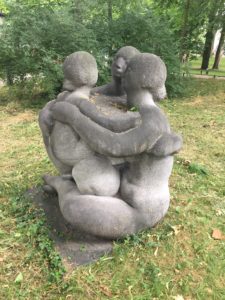Burn-out: An omen of a new world
 Burnout is everywhere. Every week I hear a new story on the radio or I read a staggering new statistic in the newspaper. The analyses are thrown around: too much work, too little rest, too much distraction by new technology, too little resilience of the younger generations, too little self-discipline, stressful combination of work and family life.
Burnout is everywhere. Every week I hear a new story on the radio or I read a staggering new statistic in the newspaper. The analyses are thrown around: too much work, too little rest, too much distraction by new technology, too little resilience of the younger generations, too little self-discipline, stressful combination of work and family life.
Burnout is not anymore about work. Proof be the burnouts among students, stay-at-home parents and burnouts among jobseekers. As a psychotherapist I’ve seen the myriad of people struck by burn-out: young, old, successful or at the bottom, with or without a job, healthy or sick, rich or poor. Burnout is the great equalizer it seems.
I’ve been fascinated by burnout for a long time and I’ve come to belief that burnout is not at all a disease, or a shortcoming.
It is an omen, a symptom, a harbinger. Burn-out is telling us something is not working anymore. It is the canary in the coal-mines. An old world view is crumbling, and at the same time something new and exciting is being born into this world.






